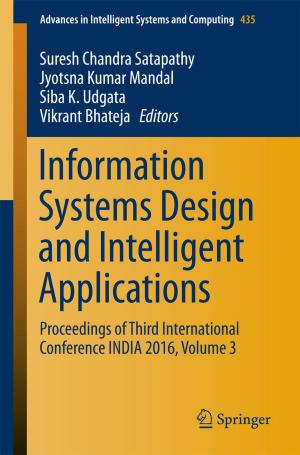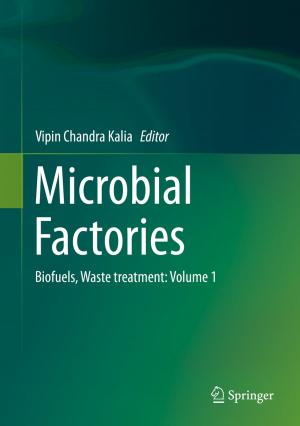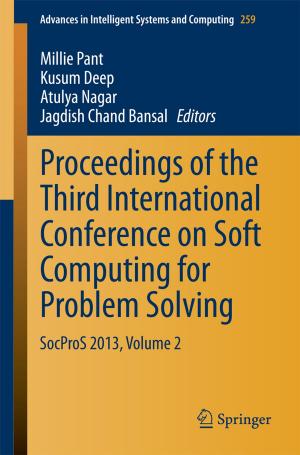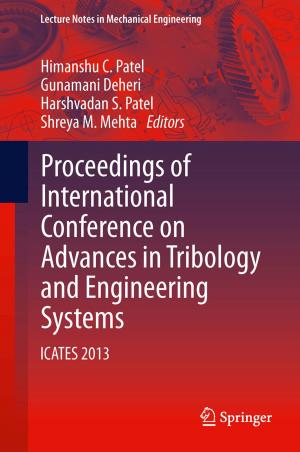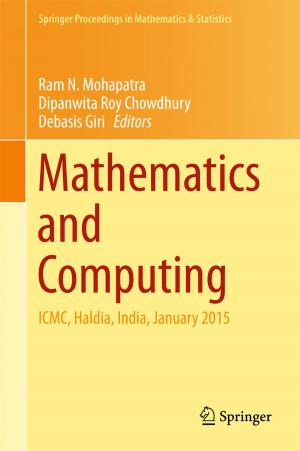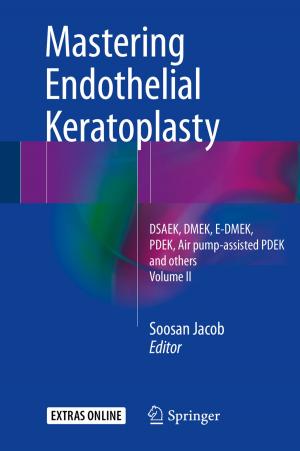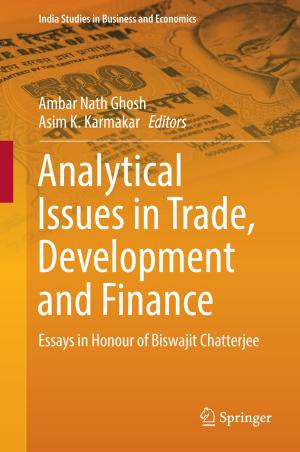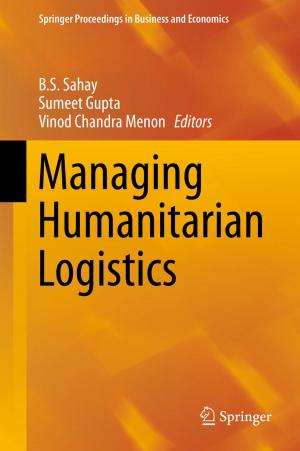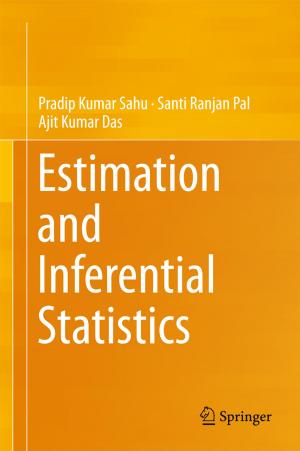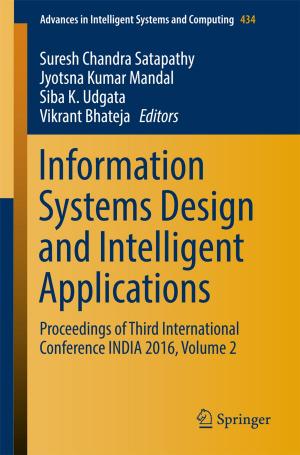Heat Stress and Animal Productivity
Nonfiction, Science & Nature, Science, Biological Sciences, Zoology, Environmental Science, Nature| Author: | Anjali Aggarwal, Ramesh Upadhyay | ISBN: | 9788132208792 |
| Publisher: | Springer India | Publication: | December 30, 2012 |
| Imprint: | Springer | Language: | English |
| Author: | Anjali Aggarwal, Ramesh Upadhyay |
| ISBN: | 9788132208792 |
| Publisher: | Springer India |
| Publication: | December 30, 2012 |
| Imprint: | Springer |
| Language: | English |
Dr. Anjali Aggarwal is working as a Senior Scientist at National Dairy Research Institute, Karnal (India). She holds a PhD degree in Animal Physiology and is involved in research and teaching at post-graduate level. Her area of research work is stress and environmental physiology. She has more than 50 publications, two technical bulletins, four manuals and many book chapters to her credit. She has successfully guided many post-graduate and PhD students. Her major research accomplishments are on microclimatic modification for alleviation of heat and cold stress, mist and fan cooling systems for cows and buffaloes, and use of wallowing tank in buffaloes. Her work involves the use of technology of supplementing micronutrients during dry period and early lactation to crossbred and indigenous cows for alleviating metabolic and oxidative stress and improved health and productivity. Studies are also done in her lab on partitioning of heat loss from skin and pulmonary system of cattle and buffaloes as a result of exercise or exposure to heat stress. Dr. R.C. Upadhyay is working as Head, Dairy Cattle Physiology Division at National Dairy Research Institute, Karnal (India). He graduated in Veterinary Sciences and obtained his PhD degree in Animal Physiology. His area of recent research is climate change, stress, and environmental physiology. His major research accomplishment is on climate change impact assessment of milk production and growth in livestock. His work also involves studying methane conversion and emission factors for Indian livestock and use of IPCC methodology of methane inventory of Indian livestock. Heat shock protein-70 expression studies in cattle and buffaloes are also done in his lab. Draught animal power evaluation, fatigue assessment, work-rest cycle and work limiting factors form the highlights of his work. Studies on partitioning of heat loss from skin and pulmonary system of cattle and buffaloes and electrocardiographic studies in cattle, buffalo, sheep and goat are also undertaken in his lab. He has more than 75 research papers, four books and several book chapters to his credit. Technologies developed and research done by him include methodology of methane measurement: open and closed circuit for cattle and buffaloes; inventory of methane emission from livestock using IPCC methodology; livestock stress index: thermal stress measurement based on physiological functions; and draught power evaluation system and large animal treadmill system. He received training in Radio-nuclides in medicine at Australian School of Nuclear Technology, Lucas heights, NSW, Australia in 1985 and Use of radioisotopes in cardiovascular investigations at CSIRO, Prospect, NSW, Australia, during 1985-86. He has guided several post-graduate and PhD students. He is recipient of Hari Om Ashram Award-1990 (ICAR) for outstanding research in animal sciences.
Dr. Anjali Aggarwal is working as a Senior Scientist at National Dairy Research Institute, Karnal (India). She holds a PhD degree in Animal Physiology and is involved in research and teaching at post-graduate level. Her area of research work is stress and environmental physiology. She has more than 50 publications, two technical bulletins, four manuals and many book chapters to her credit. She has successfully guided many post-graduate and PhD students. Her major research accomplishments are on microclimatic modification for alleviation of heat and cold stress, mist and fan cooling systems for cows and buffaloes, and use of wallowing tank in buffaloes. Her work involves the use of technology of supplementing micronutrients during dry period and early lactation to crossbred and indigenous cows for alleviating metabolic and oxidative stress and improved health and productivity. Studies are also done in her lab on partitioning of heat loss from skin and pulmonary system of cattle and buffaloes as a result of exercise or exposure to heat stress. Dr. R.C. Upadhyay is working as Head, Dairy Cattle Physiology Division at National Dairy Research Institute, Karnal (India). He graduated in Veterinary Sciences and obtained his PhD degree in Animal Physiology. His area of recent research is climate change, stress, and environmental physiology. His major research accomplishment is on climate change impact assessment of milk production and growth in livestock. His work also involves studying methane conversion and emission factors for Indian livestock and use of IPCC methodology of methane inventory of Indian livestock. Heat shock protein-70 expression studies in cattle and buffaloes are also done in his lab. Draught animal power evaluation, fatigue assessment, work-rest cycle and work limiting factors form the highlights of his work. Studies on partitioning of heat loss from skin and pulmonary system of cattle and buffaloes and electrocardiographic studies in cattle, buffalo, sheep and goat are also undertaken in his lab. He has more than 75 research papers, four books and several book chapters to his credit. Technologies developed and research done by him include methodology of methane measurement: open and closed circuit for cattle and buffaloes; inventory of methane emission from livestock using IPCC methodology; livestock stress index: thermal stress measurement based on physiological functions; and draught power evaluation system and large animal treadmill system. He received training in Radio-nuclides in medicine at Australian School of Nuclear Technology, Lucas heights, NSW, Australia in 1985 and Use of radioisotopes in cardiovascular investigations at CSIRO, Prospect, NSW, Australia, during 1985-86. He has guided several post-graduate and PhD students. He is recipient of Hari Om Ashram Award-1990 (ICAR) for outstanding research in animal sciences.


